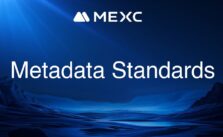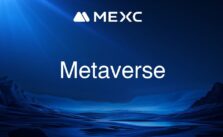Metadata Standards
Metadata standards are sets of guidelines and specifications used to describe and categorize data in a consistent and structured manner, ensuring that information is easily accessible, interoperable, and usable across various systems and platforms. These standards cover the format, structure, and attributes required to describe data resources effectively, enhancing data discovery, organization, and retrieval. Examples...
Metadata URI
A Metadata URI (Uniform Resource Identifier) is a reference that provides detailed information about a specific digital asset, typically stored off-chain and linked to a blockchain token through a unique identifier. This URI points to a location where additional data such as images, attributes, and other descriptive details about the asset can be accessed, usually...
MetaMask
MetaMask is a popular cryptocurrency wallet and gateway to blockchain-based applications, commonly known as dApps. It allows users to store and manage account keys, broadcast transactions, send and receive Ethereum-based cryptocurrencies and tokens, and securely connect to decentralized applications through a compatible web browser or the mobile app interface. Historical Context and Evolution of MetaMask...
Metaverse
The Metaverse is a collective virtual shared space, created by the convergence of virtually enhanced physical reality and physically persistent virtual spaces, including the sum of all virtual worlds, augmented reality, and the Internet. It represents an extensive online environment where people can interact, collaborate, and engage in a wide range of activities, all through...
Metaverse App
The Metaverse App is one of the most cutting-edge technologies in play today, integrating concepts of virtual reality (VR), augmented reality (AR), blockchain, and cryptocurrencies in creating parallel universes. This innovative technology is poised to redefine user experiences, foster unprecedented connectedness, and create new streams of revenue across industries. In 2021, global spending on AR/VR...
Metaverse Coin
Metaverse Coin is a prominent virtual currency in the emerging domain of the digital world, known as the Metaverse. By utilizing blockchain technology, Metaverse Coin enables users to carry out transactions and engage in activities within the virtual environment. Statistics from CoinMarketCap indicate an impressive surge in the Metaverse Coin's market capitalization in recent times....
Metaverse Coins
The 'Metaverse Coins' is a term centered around a new breed of cryptocurrency that drives the Metaverse's functioning. These coins are integral to the economy within these digital realms and often enable various forms of participation such as buying virtual goods and real estate, and rewarding in-game achievements. Metaverse coins have surged in popularity recently,...
Metaverse Crypto
The phrase "Metaverse Crypto" refers to numerous cryptocurrencies that are applied and traded within the virtual realities known as metaverses. With the increasing acceptance of digital decentralized finance (DeFi) and the proliferation of virtual reality tech, metaverse crypto is quickly becoming a new investment frontier for digital natives and savvy investors alike. The sector has...
Metaverse ETF
Metaverse ETF is a novel investment product tied to a digital frontier, the Metaverse. Metaverse ETFs allow investors to leverage the growth of virtual reality technologies, gaming, and related sectors. This ETF concentrates on companies contributing to or expected to benefit from the Metaverse, a collective virtual shared space, including augmented reality, virtual reality, digital...
Metaverse Games
Metaverse Games are virtual reality spaces where users can interact with a computer-generated environment and other users. It's an online universe, or a "virtual world," that incorporates augmented reality (AR), virtual reality (VR), 3D graphics, and AI, providing a collective virtual shared space, created by the convergence of physical and virtual reality. The global gaming...
Explore the MEXC Blog Glossary Archive to deepen your understanding of cryptocurrency and blockchain technology. This comprehensive resource features clear, easy-to-understand definitions of key crypto-related terms, concepts, and industry jargon. Whether you’re a beginner or an experienced trader, the glossary helps you stay informed, make smarter investment decisions, and navigate the fast-evolving crypto landscape with confidence. Start learning today and boost your crypto knowledge with MEXC!


